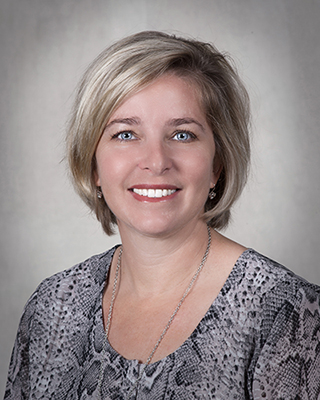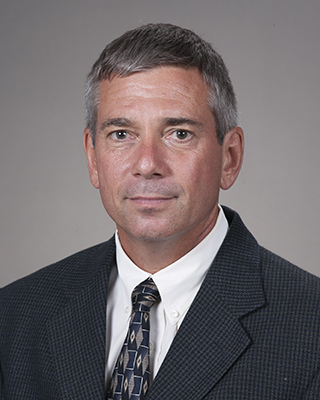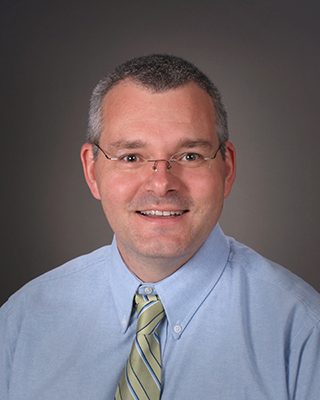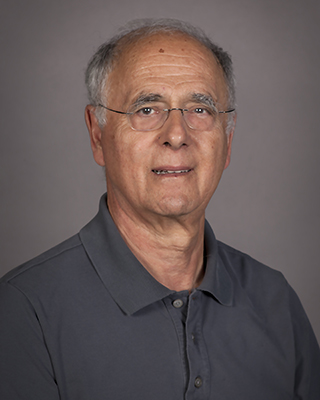CVM Faculty Recognized With AFS Distinguished Achievement Awards
Story by Megan Myers, CVMBS Communications
Five faculty members at the Texas A&M College of Veterinary Medicine & Biomedical Sciences (CVM) have been honored with this year’s Distinguished Achievement Awards from the Association of Former Students (AFS).
The university-level AFS awards are presented each year to faculty and staff who exhibit the highest standards of excellence at Texas A&M.
This year, the CVM had the most awardees from any college or division, with recipients honored in more than half of the award categories.

Dr. Kristin Chaney
Chaney, a clinical assistant professor in the CVM’s Department of Veterinary Integrative Biosciences (VIBS), was recognized for teaching.
Chaney contributes to multiple courses within the Doctor of Veterinary Medicine (DVM) curriculum, often using her experience in equine medicine to teach on a variety of subjects.
“Dr. Chaney’s passion for teaching, her command of her discipline, and her various teaching methodologies is very apparent in the classroom setting,” one nominator said. “In addition to being a knowledgeable and effective teacher, Dr. Chaney also cares greatly for her students.”
As a member of the CVM’s Professional Programs Office (PPO), Chaney helps develop the DVM program curriculum and works to advance veterinary education both within the CVM and the Association of American Veterinary Medical Colleges (AAVMC). She was also recently recognized with a Presidential Award for Meritorious Service from the AAVMC.
“As one of the lucky few who have been able to experience Dr. Chaney’s radiant energy, I can attest to her outstanding ability to accommodate a variety of student performance levels, her genuine care for every student, and her exceptional communication skills,” said another nominator and former student of Chaney’s.

Dr. Brian Porter
Porter, a clinical professor in the Department of Veterinary Pathobiology (VTPB), also was recognized for teaching.
He instructs veterinary students in the areas of pathology and diagnostic medicine and also supervises the veterinary anatomic pathology combined residency-Ph.D. program.
“Dr. Porter is an excellent role model who embodies leadership traits and possesses the unique ability to relay information to students/residents that is easy to understand and retain,” one nominator said. “Dr. Porter has played a critical role in the success of the residency program at Texas A&M University.”
Porter serves as both a teacher and mentor for his students, with many former students saying he inspired them to pursue careers in pathology. He has also been recognized with the Carl J. Norden-Pfizer Distinguished Teaching Award from Zoetis.
“He has taken modern teaching methods in stride and keeps the students’ attention and interest with interactive lectures, gaining excellent student evaluations along the way,” another nominator said.
Dr. Gregory Johnson

Johnson, a professor in VIBS, was recognized for research.
His work at the CVM studies the interactions between the embryo/fetus and uterus during pregnancy, with the ultimate goal of reducing pregnancy loss in women, livestock, and companion animals.
“By every measure of excellence and international recognition, Dr. Johnson is a research leader in his field of reproductive biology,” one nominator said. “Dr. Johnson has established himself as a highly accomplished researcher and truly outstanding teacher and mentor.”
Dr. Johnson’s laboratory has studied the unique physiology of pigs and sheep to establish many of the key molecules involved in initial attachment of the placenta to the uterus.
He found that the protein osteopontin (OPN) has diverse roles in mammalian pregnancies, including nutrient transport, homing of immune cells to the uterus during pregnancy, and the genesis of new blood vessels in the uterus and placenta required to support fetal development.
“Dr. Johnson’s pioneering research, contagious enthusiasm, and common sense have thrust him into positions of high professional responsibility,” another nominator said. “He is frequently called upon to review research papers and grant proposals; he has served on the editorial boards of the most prestigious journals in the field of reproductive biology.”

Dr. Jörg M. Steiner
Steiner, a University Distinguished Professor in the Department of Small Animal Clinical Sciences (VSCS), was recognized for extension, outreach, continuing education, and professional development.
As director of the Gastrointestinal (GI) Laboratory, he oversees a staff of scientists, technicians, and student assistants as they perform testing services to help veterinarians around the world diagnose and treat gastrointestinal diseases in dogs and cats.
“Dr. Steiner collaborated with numerous colleagues not only from veterinary but also from human medicine from all over the world,” one nominator said. “The comparative aspects of his work are of great interest and help to generate funding, demonstrated by the impressive number of his (competitive) research grants.”
Steiner is also a world leader in the study of canine and feline pancreatitis, having devoted much of his research career to developing the first accurate and reliable method to test for these conditions.
“Dr. Steiner’s impact on the practice of small animal veterinary gastroenterology has been profound,” another nominator said. “His research and study of both canine and feline pancreatic diseases over a span of 16 years helped to revolutionize the diagnostic approach to this condition.”
Dr. Stephen Safe

Safe, a Distinguished Professor in the Department of Veterinary Physiology and Pharmacology (VTPP), was recognized for graduate mentoring.
Within the Molecular & Cellular Oncology Laboratory, also known as the Safe Lab, he mentors graduate students as they work to develop anticancer agents and a new class of drugs for treating endometriosis.
“Dr. Safe has been an extraordinarily supportive and highly inspiring mentor to many graduate students, including myself,” said one nominator, who previously worked in the Safe Lab. “He has mentored a plethora of graduate students, the majority of whom have highly productive scientific careers. Most importantly, his guidance lead to the overall development and character of a graduate student to serve and lead in their own professional and personal lives.”
Safe has mentored 97 Ph.D. students, 18 Master of Science graduate students, and more than 20 postdoctoral fellows.
“Dr. Safe is always willing to share his scientific experience, vision, and knowledge to find career-related information and exposure to various professional resources, opportunities, meetings, and networks,” said another nominator and past graduate student in the Safe Lab. “Furthermore, he has provided both emotional and moral support and encouragement through career related counseling and coaching.”
###
For more information about the Texas A&M College of Veterinary Medicine & Biomedical Sciences, please visit our website at vetmed.tamu.edu or join us on Facebook, Instagram, and Twitter.
Contact Information: Jennifer Gauntt, Director of CVM Communications, Texas A&M College of Veterinary Medicine & Biomedical Sciences; jgauntt@cvm.tamu.edu; 979-862-4216


